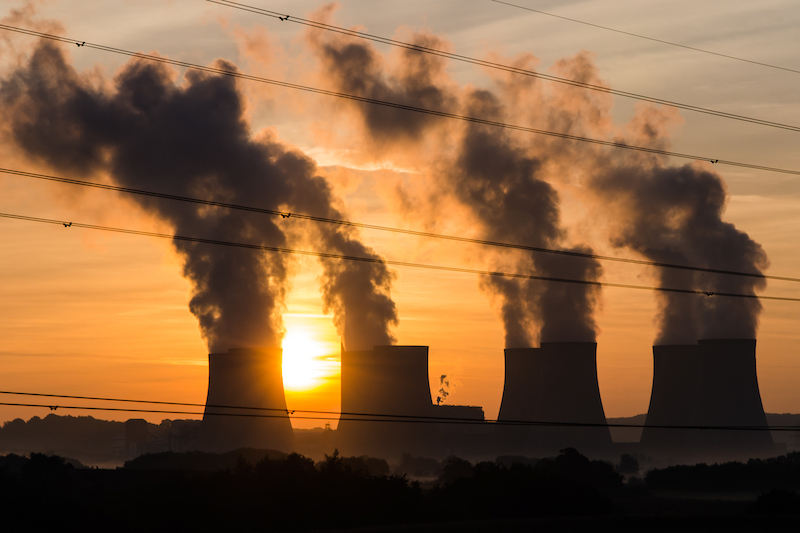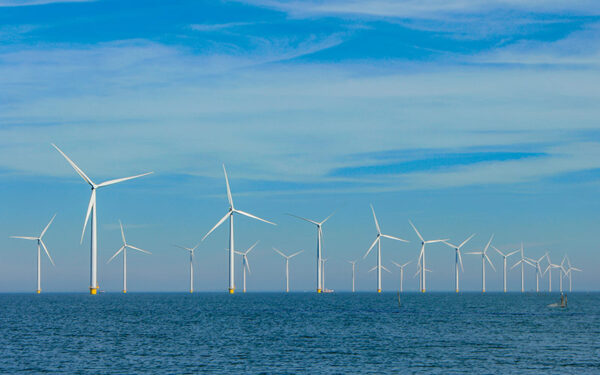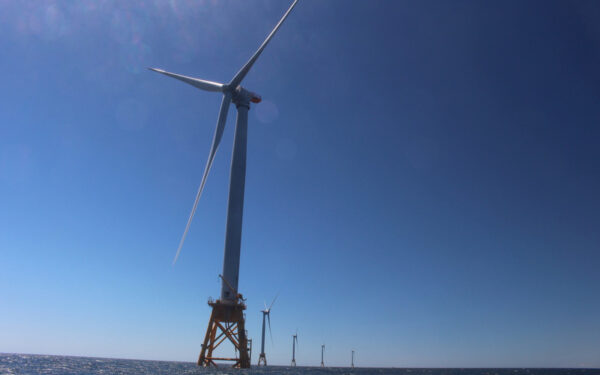
A fossil fuel power plant spews pollutants into the air. Photo: Gerry Machen, Flickr.
I have to admit, before joining CLF, I didn’t think too much about where my electricity came from. For all I knew, it came from the same company that sent me my utility bills. And that’s true, but only to a certain extent.
My work at CLF is exposing me to secretive body that makes rules and decisions about New England’s electricity way before it’s delivered to my apartment and charged to my bill. Recent news has shined a light on this entity I had never heard about before joining CLF: ISO-New England, our regional grid operator.
I’ve learned in the past few months that ISO oversees New England’s electricity markets. This is where the entities generating electricity (producers) sell it to the corporations sending electricity to our homes and businesses (distributors).
I’ve also learned that special rules govern these markets. One rule in particular makes it harder for clean energy producers to compete with dirty power plants. That, in turn, hinders more clean energy projects from getting built in New England and powering our grid.
The bad news? In a last-minute decision, ISO-New England extended that rule for two more years. This decision will prevent the development of clean energy resources that we need to avoid worsening the climate crisis.
Slowing the Transition to Our Clean Energy Future
It’s no secret that the New England states are making ambitious moves towards creating a clean energy future. The evidence is clear in the mandatory climate laws on the books in most New England states.
Yet even as state leaders, residents, and business owners call for more clean energy, ISO-New England has implemented rules they claim keep prices fair for fossil fuel power plants. But, really, those rules make clean energy less competitive in the markets. One of these rules is called the Minimum Offer Price Rule. This rule creates an artificial minimum threshold below which electricity sources cannot bid into the market.
By giving an advantage to more expensive fossil-fueled power plants in ISO-New England’s electricity markets, the rule extends the life of highly polluting plants. It also promotes continued investment in fossil fuel infrastructure while preventing affordable, clean energy from entering the market. The rule jacks up electricity costs for families and businesses, worsens air pollution, and undercuts New England states’ efforts to slash climate-damaging emissions. Worse, these effects disproportionately impact communities already overburdened by environmental threats.
Here’s How the Rule Hurts Clean Energy Producers
The reality is energy sources like wind and solar are much cheaper than fossil fuels because of decreasing technology costs, state subsidies, energy policies, and other incentives. If they sold for their real cost in the market, they would easily outcompete oil and gas. But the Minimum Offer Price Rule forces many clean energy producers to sell their energy at higher prices. That then erases their competitive edge against fossil fuels that have long dominated the market, and prices out the clean energy producers.
ISO-New England claims this rule keeps the market fair. What it actually does is artificially inflate the price of renewables. If given the choice between a historically favored product (fossil fuels) and a more expensive, new product (clean energy), it’s obvious the tendency will be to choose business as usual.
The direct consequence for our clean energy future isn’t just a more costly price tag for consumers. This rule also makes it harder to build new clean energy projects. With no demand for their supply (due to the ISO’s artificially high market price), clean energy companies lack sufficient incentive to invest in new projects in New England.
And so, yet again, we find ourselves shackled to fossil-fuel doom with even greater climate damage.
ISO New England Just Locked Us into More Fossil Fuels
The climate crisis demands that we end our reliance on dirty fossil fuels and urgently ramp up clean energy. So do the climate laws passed by most New England states. That’s why CLF and our partners have been pushing ISO New England to eliminate the Minimum Offer Price Rule. We thought we had succeeded when ISO announced last May that it would eliminate the rule by early 2023.
As you might expect, the fossil fuel industry wasn’t happy about eliminating a rule that gave them an advantage in New England’s electricity market. So, three Big Gas companies proposed extending the rule for two more years. Nothing happened with their proposal at the time, and ISO gave no indication it was considering it.
It came as a complete surprise then, when ISO announced earlier this year that it had changed its mind: It would extend the rule for two more years. ISO warned of intense disruptions to our electricity systems if we removed the rule and continued transitioning to clean energy sources. Disruptions so intense that they would threaten the reliability of electricity supply into our homes and businesses.
At face value, ISO’s claim is scary – terrifying, really. No one wants to face rolling blackouts. But we must question if this claim is true, especially because ISO hasn’t provided any legitimate backup to this fearful message. Not to mention, clean energy and reliability aren’t mutually exclusive. Wind and solar combined with enhanced energy efficiency programs and emerging technologies (like energy storage) can provide reliable service.
This two-year extension was exactly what the fossil fuel industry wanted. You know, the same corporations whose existence hinges upon our addiction to dirty fuels. Even worse, the market that this rule governs sells for three years into the future. That means the two-year extension shackles us to more fossil fuels for years to come. Years more chained to dirty fuels. Years of clean energy put on the back burner – all despite scientists worldwide telling us polluting emissions must be halved this decade to avert the worst climate impacts.
But ISO New England’s Duplicity Isn’t a Done Deal
CLF, our partners, and some state consumer advocates aren’t ready to accept this sneaky decision – and thankfully, there’s still time to act. ISO’s proposed two-year extension now needs approval by federal regulators.
These secretive decisions about our electricity determine which sources power our lives, and influence how much we pay for them in our monthly bills. We deserve to control our future, including the electricity we receive and the climate we live in. So, it’s time for our regional grid operator to step up in supporting our transition to a clean energy future. We can’t afford to wait any longer.




